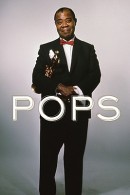 Terry Teachout’s new biography of Louis Armstrong has been quickly met with high praise. In the New York Times, Michiko Kakutani (who named the book one of her ten best of the year) calls it an “eloquent and important” book that “restores this jazzman to his deserved place in the pantheon of American artists.” The Times on the other side of the pond concurs, calling it “terrific.” In that review, Robert Sandall focuses on Armstrong’s complex history with both blacks and whites, the result of struggles and successes in the America of his time. (“By the late 1950s, with his 60th birthday approaching and four decades of solid success behind him, Armstrong was still forced to sleep in a gymnasium while playing in segregated North Carolina and was denied access to a public lavatory in Connecticut.”) The early influence of a Jewish family, the cries of “Uncle Tom” from prominent African-Americans throughout his career, and his disappointment at being “a greater attraction among whites than my own people” were just three of the factors that shaped the man Teachout calls “a child of his time, not ours.” Armstrong’s story is widely known, but Sandall says, “Teachout’s access to a previously unavailable archive of taped conversations and writings has allowed him to construct the most complete picture yet of a well-studied subject.”
Terry Teachout’s new biography of Louis Armstrong has been quickly met with high praise. In the New York Times, Michiko Kakutani (who named the book one of her ten best of the year) calls it an “eloquent and important” book that “restores this jazzman to his deserved place in the pantheon of American artists.” The Times on the other side of the pond concurs, calling it “terrific.” In that review, Robert Sandall focuses on Armstrong’s complex history with both blacks and whites, the result of struggles and successes in the America of his time. (“By the late 1950s, with his 60th birthday approaching and four decades of solid success behind him, Armstrong was still forced to sleep in a gymnasium while playing in segregated North Carolina and was denied access to a public lavatory in Connecticut.”) The early influence of a Jewish family, the cries of “Uncle Tom” from prominent African-Americans throughout his career, and his disappointment at being “a greater attraction among whites than my own people” were just three of the factors that shaped the man Teachout calls “a child of his time, not ours.” Armstrong’s story is widely known, but Sandall says, “Teachout’s access to a previously unavailable archive of taped conversations and writings has allowed him to construct the most complete picture yet of a well-studied subject.”
Pops: A Life of Louis Armstrong by Terry Teachout
Houghton Mifflin, 496 pp., $30.00

